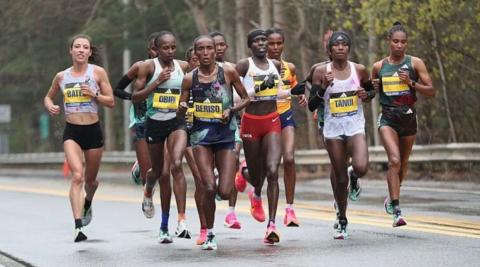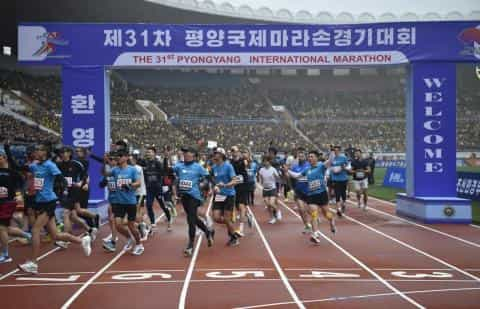
The world of running is filled with inspiring feats of athleticism and speed. From Emmanuel Wanyonyi’s astonishing 3:54.56 mile to Kelvin Kiptum’s record-breaking marathon of 2:00:35, elite runners continually push the boundaries of human performance. However, these remarkable times are not reflective of the average runner's experience. As the sport of running becomes increasingly popular, the average race finish times have evolved, often slower than those seen in elite competitions. Understanding these average times can provide context for your personal performance and set realistic goals. Here’s a look at the average finish times for various race distances, from the mile to the marathon.

The mile race, a classic distance often used in track events, is one of the most straightforward yet challenging races. For many recreational runners, the average finish time for the mile varies widely based on experience and fitness level:
While elite runners can complete the mile in under 4 minutes, these average times reflect the broad spectrum of runners who take part in mile events, including those who are newer to the sport or running at a more relaxed pace.
The 5K is a popular race distance that strikes a balance between speed and endurance. It's often the entry point for many new runners and is a common distance for both competitive and recreational events.
These times represent a range from relatively fit runners to those who may be newer or running at a more leisurely pace. Elite runners can complete a 5K in under 13 minutes, but most participants fall into this average range.
The 10K is a step up in distance from the 5K, demanding greater endurance while still requiring a strong pace. It’s a favorite among those who have moved beyond the shorter distances but aren’t yet ready for a half marathon.
These times reflect the range of performance from moderately trained runners to those who are more casual participants. Elite runners often finish in under 30 minutes, but the average runner's times are considerably longer.
The half marathon is a popular long-distance event that offers a challenging but achievable goal for many runners. It requires both speed and endurance and is often seen as a stepping stone to the marathon.
These times cover a wide range of abilities, from dedicated amateur runners to those who are new to distance running. Elite athletes can complete a half marathon in under 60 minutes, but most average runners fall within these ranges.
The marathon is the ultimate test of endurance and often represents the pinnacle of many runners’ achievements. The finish times for marathons can vary greatly depending on experience, training, and race conditions.
While elite marathoners run under 2:10 hours, most recreational runners have significantly longer times. These average finish times reflect the dedication required to complete a marathon while still accommodating a range of running experiences.

It’s important to remember that these average finish times represent a broad spectrum of abilities and experiences. They provide a general benchmark but don’t account for individual factors like age, fitness level, and training background. The average times can serve as motivation and a gauge for setting personal goals, but they should always be viewed in the context of your own running journey.
Running is a highly individual sport where personal improvement and enjoyment are key. Whether you’re aiming to break personal records or simply complete a race, understanding these average finish times can help you set realistic goals and celebrate your achievements, no matter where you fall on the spectrum.
In conclusion, while elite runners continue to push the boundaries of speed, the average finish times for races from the mile to the marathon reflect a diverse range of performances. By comparing your times to these averages, you can better appreciate your progress and the unique challenges of each distance.
For more content find us via the app store:
Discover More Content





